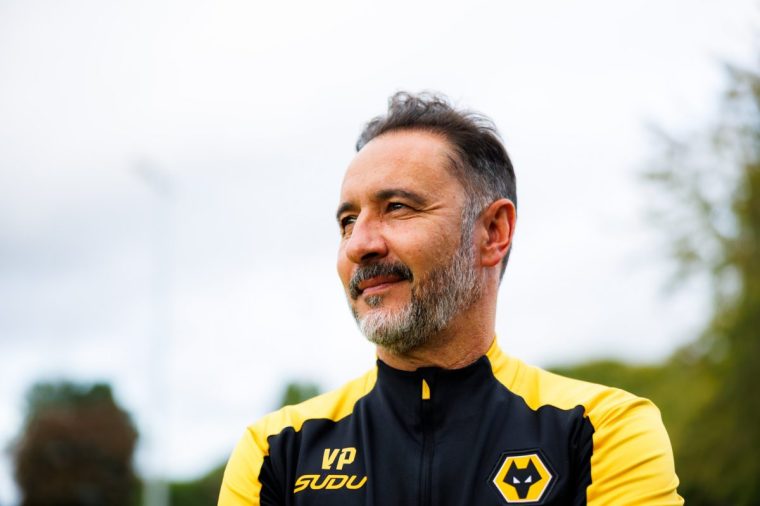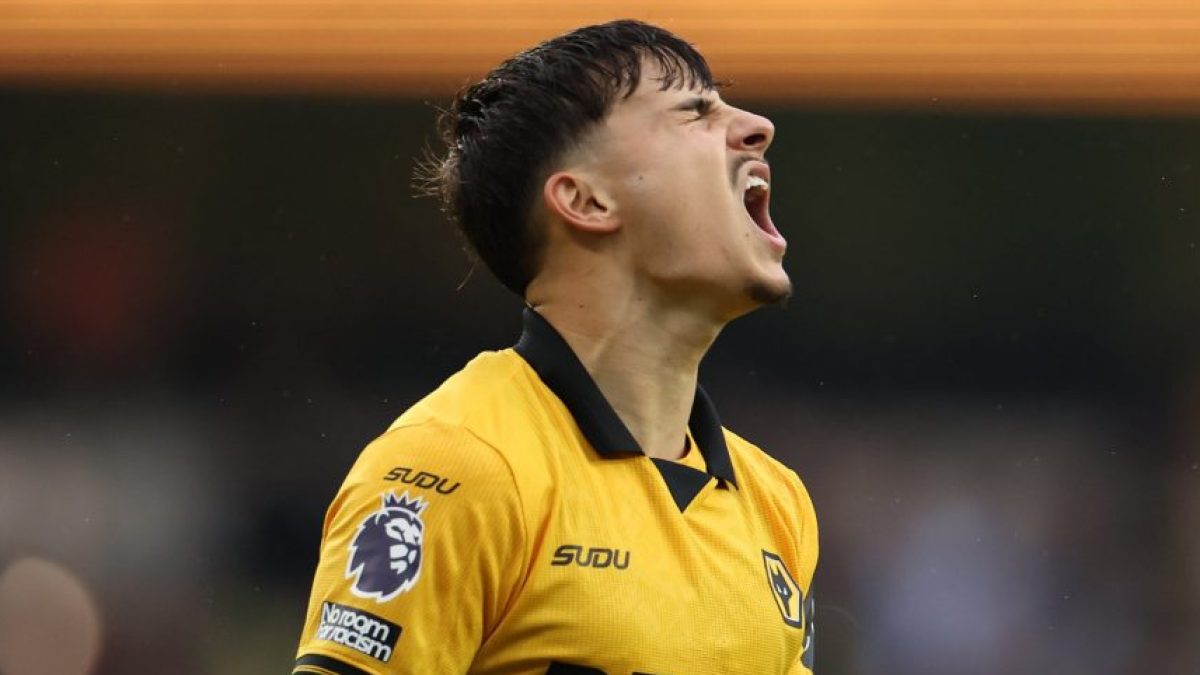There was some external hilarity last week when Wolverhampton Wanderers announced that manager Vitor Pereira, in charge of the only point-less club in the Premier League, had signed a new contract. It hardly subsided when Wolves promptly lost 3-1 at home to Leeds United, a team that until then had scored once in the league all season.
Yet Pereira’s deal makes some sense. This works both ways. If another club wants to take advantage of some itchiness – and Pereira has reached 70 matches in charge in one of his last nine appointments – then Wolves get greater compensation. If Wolves want to move Pereira on, he gets a pay-off. At a time of great flux, Wolves get some stability.
More pertinently, Pereira’s deal is a reflection of his status as one of the more popular off-field figures at Molineux, an attempt to mitigate the growing panic. That status is a low bar. Six months ago, Pereira was drinking pints with supporters after each win. Now everybody here is drowning their sorrows.
Pereira’s work at Wolves last season was wonderful. His new side had nine points from 16 league games when he arrived, anchored closer to the doomed promoted clubs than any of their assumed peers.
Between then and the end of the league campaign, only Liverpool, Arsenal, Manchester City, Aston Villa, Newcastle and Nottingham Forest won more matches. All of those clubs are playing in Europe this season.
 Pereira’s new deal makes more sense than you think (Photo: Getty)
Pereira’s new deal makes more sense than you think (Photo: Getty)
Pereira had earned some investment, in his squad and in his methodology. That became critically important given the likeliest summer departures: Matheus Cunha, Rayan Ait-Nouri, Pablo Sarabia and Nelson Semedo. All four would leave conspicuous holes.
Wolves’ manager hardly made those demands a secret: “Of course, we need players. We need to be stronger next season, competing for every game.”
As a response, Wolves invested in potential. Striker Tolu Arokodare had had one prolific season in Belgian football. Fer Lopez has two Spain U21 caps. Jackson Tchatchoua and Ladislav Krejci have each experienced one season as a regular starter in a top five European league. Jhon Arias is 28 but had never played in Europe. David Moller Wolfe might be the third-choice left back.
There is nothing inherently wrong with buying potential over proven talent – in some circumstances it can be the best approach. But at Molineux this summer, they added potential to more potential.
As well as Cunha, Semedo, Sarabia and Ait-Nouri, since June 2023 Wolves have sold Ruben Neves, Matheus Nunes, Nathan Collins, Raul Jimenez, Max Kilman and Pedro Neto. In total, those sales have generated £320m.
Now there is a distinct lack of senior players with experience in the first team. The 10 outfielders from the starting XI against Leeds shared only 212 Premier League starts before this season and João Gomes and Toti Gomes account for 159 of them.
This is an unbalanced team which is asking a lot of those still settling in. One of the only green shoots has been the victory over Everton in the Carabao Cup. Inevitably, potential talent takes longer to acclimatise. Again, Pereira warned as much. Hence you see a fairly simple equation playing out: lose your senior players, replace them with inexperience, find things very difficult in the autumn.
The accusation from supporters is that Wolves have attempted their rebuild on the cheap. Three years ago, non-financially elite Premier League clubs largely shopped in the £15m-£20m range where they could identify good value.
Inflation and the Premier League’s growing financial dominance has shifted those figures, but Wolves have not. They and Leeds United were the only two Premier League clubs not to spend £25m on a player this summer – several outside the Big Six did so multiple times. The size of the transfer fee isn’t everything, but it represents a pattern that Wolves have chosen to ignore.
Football supporters generally forgive mistakes, even if they may get angry in the immediate aftermath of setbacks. What they struggle to accept is the same repeated mistake, particularly when it is fuelled by a perceived lack of ambition from those at the top. The departure of sporting director Matt Hobbs at the end of last season may have caused delays or changes to existing plans, but that’s not good enough. This has been going on for some time.
Over their first five games of the last five seasons (so 25 matches in total), Wolves have lost 19 of them and accrued points at a rate of 0.48 per game. This club has proven itself repeatedly incapable of being adequately prepared to face the challenges of early season. As such, the last three managers have left in August, October and December.
It is this deja vu that most angers supporters and provoked such mutiny towards owners Fosun at Molineux last Saturday. We were here a year ago. And the year before that. And the year before that.
There’s nothing more galling than watching your club play catch-up either through questionable strategy or no obvious strategy at all. It raises a suspicion that those entrusted to take the club forward have become disinterested; PR is everything.
Other clubs outside of the established Premier League elite aren’t making those same mistakes. Their recent success may rely upon one inspirational manager (Bournemouth, Crystal Palace) or an exacting recruitment model (Brighton) that lacks watertight sustainability; nobody can guarantee that. But the process is sensible and transparent and thus popular. Supporters see where their club is aiming to go, even if the eventual destination is not certain.
At Molineux, can any supporter believe in the same? Their club has finished in consecutively lower positions for four seasons in a row. They have reached two domestic cup quarter-finals in that time but then lost to Nottingham Forest and Coventry City. They have appointed three managers in three years and all have become frustrated or hamstrung before leaving.
Now comes the emergency. Wolves cannot afford to fall any further without collapsing back into the Championship. The promoted clubs cannot be relied upon to flop every season. Wolves have been saved by new manager bounces and January transfer window work and will likely need to repeat the trick once more. They are failing their way, risking something deeply precious to slip out of their grasp.

